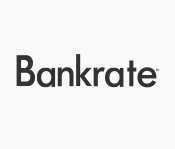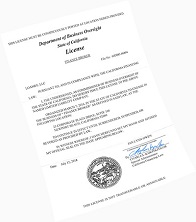Personal. Meet Loan.
A personal loan, sometimes called a “consumer loan,” is exactly that – a loan to you, the consumer, as an individual. You receive money up front and agree to pay it back with interest. Interest is the cost of borrowing money, the same way you might pay to rent a movie or sleep in a hotel room – you pay for using it, even though you eventually “give it back.” You can begin your personal loan shopping at your favorite local bank or credit union, but don’t overlook the many valid options for a personal loan online.
Personal loans typically carry a fixed interest rate, meaning that whatever rate you and the lender agree to at the outset is what the rate will be for the life of the loan. Most personal loans are term loans, also known as “installment loans.” They’re repaid in consistent amounts at the same time every month and your final payment date is scheduled the day you sign the paperwork.
There are sometimes other fees to offset the set-up costs of consumer installment loans. These should be spelled out in advance; if they’re not, you should ask if they’re hidden in the numbers somewhere. There may be penalties for late payments or for paying the loan off early. Like the interest rate and any fees, these should all be spelled out clearly in advance before you commit to the loan.
Personal loans can be “secured” or “unsecured.” If a loan is “secured,” it means you’re offering up something of comparable or greater value than the amount borrowed as a guarantee of repayment. The item you use as security becomes “collateral” for the loan. If for any reason you’re unable to make your payments, the lender has the right to take possession of your collateral in order to reclaim what they’ve lost as a result. Most of them don’t want to do this; it’s inconvenient to have to claim and then sell your house or car or silver bullion or rare Hot Wheels collection. They do it to protect their own interests and to motivate you to find a way to make those payments on time, every time.
The advantage to a “secured” loan is that you’re generally able to lock in a lower interest rate because the loan is less of a risk for the lender. On the other hand, there’s a risk you’ll lose your collateral if you’re unable to make your payments. Not so with an “unsecured” loan. An “unsecured” loan is not backed up by collateral. Because of this, it’s considered a higher risk for lenders. The interest rate you’re able to get on an “unsecured” loan is largely dependent on your current credit score and credit history. If you have a good track record of making car payments, using credit cards wisely, and otherwise demonstrating financial reliability, you probably have a high three-digit credit score. Loans for good credit usually carry lower interest rates and offer other generally favorable terms.
If you’re relatively young or have somehow avoided using credit until now and don’t have much of a credit history one way or the other, you can still apply for a personal loan. There are reputable online loan companies who specialize in personal installment loans and gladly consider a bad credit personal loan for borrowers with reliable income and other indications of stability. As with so many other things, you won’t know until you ask. Installment loans for bad credit may be more difficult to secure, and they’ll likely have slightly higher interest rates, but they’re out there if you need them.














